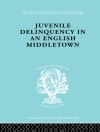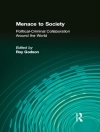Biographical research may take a range of forms and may vary in its application and approach but has the unified and coherent aim to give ′voice′ to individuals. The central concern of this collection is to assemble articles (from sociology, social psychology, education, health, criminology, social gerontology, epidemiology, management and organizational research) that illustrate the full range of debates, methods and techniques that can be combined under the heading ′biographical research′.
Volume One: Biographical Research: Starting Points, Debates and Approaches explores the different biographical methods currently used while locating these within the history of social science methods.
Volume Two: Biographical Interviews, Oral Histories and Life Narratives focuses on the more established, interview-based, biographical research methods and considers the analytical strategies used for interview-based biographical research
Volume Three: Forms of Life Writing: Letters, Diaries and Auto/Biography considers the value of ′data′ contained within letters, diaries and auto/biography and illustrates how this data has been analyzed to reveal biographies and their social context.
Volume Four: Other Documents of Life: Photographs, Cyber Documents and Ephemera focuses on the ′other′ human documents and objects, like photographs, cyber-documents (emails, blogs, social networking sites, webpages) and other ephemera (such as official documents) that are used extensively in biographical research.
Зміст
VOLUME ONE: BIOGRAPHICAL RESEARCH: STARTING POINTS, DEBATES AND APPROACHES
Biographical Method – Louis Smith
The Auto/Biographical Society – Ken Plummer
Assumptions of the Method – Norman Denzin
A Biographical Turn in the Social Sciences? A British-European View – Tom Wengraf, Prue Chamberlayne and Joanna Bornat
On Auto/Biography in Sociology – Liz Stanley
Weaving Stories – Pamela Cotterill and Gayle Letherby
Personal Auto/Biographies in Feminist Research
Autobiography, Intimacy and Ethnography – Deborah Reed-Danahay
Practising Sociological Imagination through Writing Sociological Autobiography – Alem Kebede
The Interpretation of Documents and Material Culture – Ian Hodder
Observing Culture and Social Life – Gregory Stanczak
Documentary Photography, Fieldwork and Social Research
Repositioning Documents in Social Research – Lindsay Prior
Oral History – Joanna Bornat
Oral and Life History – Julie Mc Leod and Rachel Thomson
What Is Narrative Research? – Molly Andrews, Corinne Squire and Maria Tamboukou
The Narrative Potential of the British Birth Cohort Studies – Jane Elliott
Qualitative Longitudinal Research – Julie Mc Leod and Rachel Thomson
Text, Context and Individual Meaning – Consuelo Corradi
Rethinking Life Stories in a Hermeneutic Framework
Analytic Auto-Ethnography – Leon Anderson
Auto-Ethnography in Vocational Psychology – Peter Mc Ilveen et al
Wearing Your Class on Your Sleeve
VOLUME TWO: BIOGRAPHICAL INTERVIEWS, ORAL HISTORIES AND LIFE NARRATIVES
Securing Biographical Experience – Norman Denzin
Collecting Life Histories – Robert Miller
Narrative Methodologies – Liz Stanley and Bogusia Temple
Subjects, Silences, Re-Readings and Analyses
Madness to the Method? Using a Narrative Methodology to Analyze Large-Scale Complex Social Phenomena – Liz Stanley
Narrating Life Stories in between the Fictional and the Autobiographical – Maarit Leskelä-Kärki
Among the Chosen – Thomas Barone
A Collaborative Educational (Auto)biography
Bodies, Narratives, Selves and Autobiography – Andrew Sparkes
The Example of Lance Armstrong
Growing up with a Lesbian Mother – Carrie Paechter
A Theoretically Based Analysis of Personal Experience
Researching Groups of Lives – Diana Jones
A Collective Biographical Perspective on the Protestant Ethic Debate
Developing Narrative Research in Supportive and Palliative Care – Amanda Bingley et al
The Focus on Illness Narratives
The Life History Interview Method – Roberta Goldman et al
Applications to Intervention Development
Life Stories and Social Careers – Robin Humphrey
Ageing and Social Life in an Ex-Mining Town
The Written Life History as a Prime Research Tool in Adult Education – Catharine Warren
Looking Back, Looking Forward – Susan Feldman and Linsey Howie
Reflections on Using a Life History Review Tool with Older People
Emplacing the Research Encounter – Mark Riley
Exploring Farm Life Histories
′Hidden Ethnography′ – Shane Blackman
Crossing Emotional Borders in Qualitative Accounts of Young People′s Lives
′We′re Not Ethnic, We′re Irish!′ – Jennifer Clary-Lemon
Oral Histories and the Discursive Construction of Immigrant Identity
Neighborhood Planning – June Manning Thomas
Uses of Oral History
Reminiscing Television – Jukka Kortti and Tuuli Anna Mähönen
Media Ethnography, Oral History and Finnish Third Generation Media History
Consent in Oral History Interviews – Geertje Boschma, Olive Yonge and Lorraine Mychajlunow
Unique Challenges
Who Do We Think We Are? Self and Reflexivity in Social Work Practice – Avril Butler, Deirdre Ford and Claire Tregaskis
Statistical Stories? The Use of Narrative in Quantitative Analysis – Jane Elliot
VOLUME THREE: OTHER FORMS OF LIFE WRITING: LETTERS, DIARIES AND AUTO/BIOGRAPHY
Shadows Lying across Her Pages – Liz Stanley
Epistolary Aspects of Reading ′The Eventful I′ in Olive Schreiner′s Letters
Sociological Imaginings and Imagining Sociology – David Morgan
Bodies, Auto/Biographies and Other Mysteries
Letters to a Young Baller – Megan Chawansky
Exploring Epistolary Criticism
Introduction 2. ′Anxiously Yours′: The Epistolary Self and the Culture of Concern – Nicky Hallett
The Epistolary Self and the Culture of Concern
Do Their Words Really Matter? Thematic Analysis of U.S. and Latin American CEO Letters – Roger Conaway and William Wardrope
Constructing Personal Identities in Holiday Letters – Stephen Banks, Esther Louie and Martha Einerson
Five Holiday Letters – Stephen Banks
A Fiction
Dear Shit-Shovellers – Sharon Lockyer and Michael Pickering
Humour, Censure and the Discourse of Complaint
Guidelines for Quality in Autobiographical Forms of Self-Study Research – Robert Bullough Jr. and Stefinee Pinnegar
Wole Soyinka and Autobiography as Political Unconscious – Ato Quayson
Researching Diaries – Andy Alaszweski
Getting Started – Andy Alaszweski
Finding Diarists and Diaries
Public and Private Meanings in Diaries – Linda Bell
Researching Family and Child Care
The Personal Is Political – Lauri Hyers, Janet Swim and Robyn Mallett
Using Daily Diaries to Examine Everyday Prejudice-Related Experiences
Recalling the Letter – John Duffy
The Uses of Oral Testimony in Historical Studies of Literacy
Meaning of Work in Dalit Autobiographies – Shashi Bhushan Upadhyay
Two Hours or More away from Most Things – James Haywood Rolling, Jr. and Lace Marie Brogden
Re-Writing Identities from No Fixed Address
VOLUME FOUR: OTHER DOCUMENTS OF LIFE: PHOTOGRAPHS, CYBER DOCUMENTS AND EPHEMERA
Families, Secrets and Memories – Carol Smart
Accessories to a Life Story – Ken Plummer
From Written Diaries to Video Diaries
The Virtual Objects of Ethnography – Christine Hine
Kin-to-Be – Christine Hegel-Cantarella
Betrothal, Legal Documents and Reconfiguring Relational Obligations in Egypt
′Freshly Generated for You, and Barack Obama′ – Jill Walker Rettberg
How Social Media Represent Your Life
History, Living Biography and Self-Narrative – Shay Sayre
Moving Stories – Nicola Ross et al
Using Mobile Methods to Explore the Everyday Lives of Young People in Public Care
′Entering the Blogosphere′ – Nicholas Hookway
Some Strategies for Using Blogs in Social Research
Fieldnotes in Public – Nina Wakeford and Kris Cohen
Using Blogs for Research
Visual Storytelling – Sarah Drew, Rony Duncan and Susan Sawyer
A Beneficial but Challenging Method for Health Research with Young People
Beyond the Standard Interview – Anna Bagnoli
The Use of Graphic Elicitation and Arts-Based Methods
Prison Tattoos as a Reflection of the Criminal Lifestyle – Alicia Rozycki et al
Something to Show for It – Christine Wall
The Place of Mementoes in Women′s Oral Histories of Work
′Goods, Chattels and Sundry Items′ – Swati Chattopadhyay
Constructing 19th-Century Anglo-Indian Domestic Life
Self-Enhancement or Self-Coherence? Why People Shift Visual Perspective in Mental Images of the Personal Past and Future – Lisa Libby and Richard Eibach
Inner-City Children in Sharper Focus – Gregory Stanczak
Sociology of Childhood and Photo Elicitation Interviews
Video in Ethnographic Research – Sarah Pink
Про автора
John Goodwin is a Professor of Sociology and Sociological Practice at the University of Leicester. As a sociologist, John has a broad range of research interests including education to work transitions, sociological research methods, and the history of sociology. He is a recognized expert on the life and sociology of Pearl Jephcott, and he also has a significant interest in the works of Norbert Elias, C. Wright Mills, and Stanley Milgram. In terms of his sociological practice, John has expertise in qualitative secondary analysis, restudies, biographical methods, and the use of unconventional data sources in sociological research.












